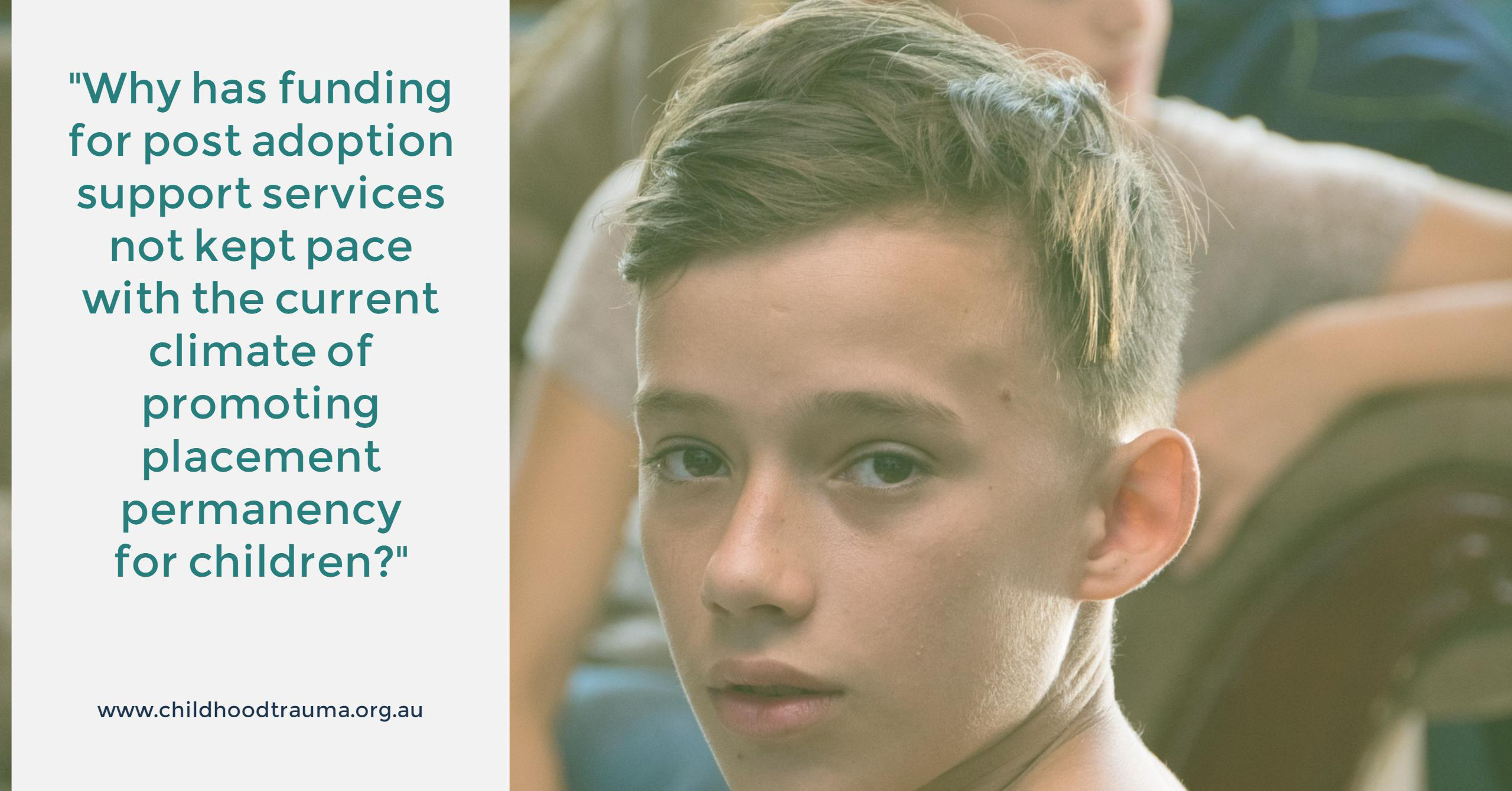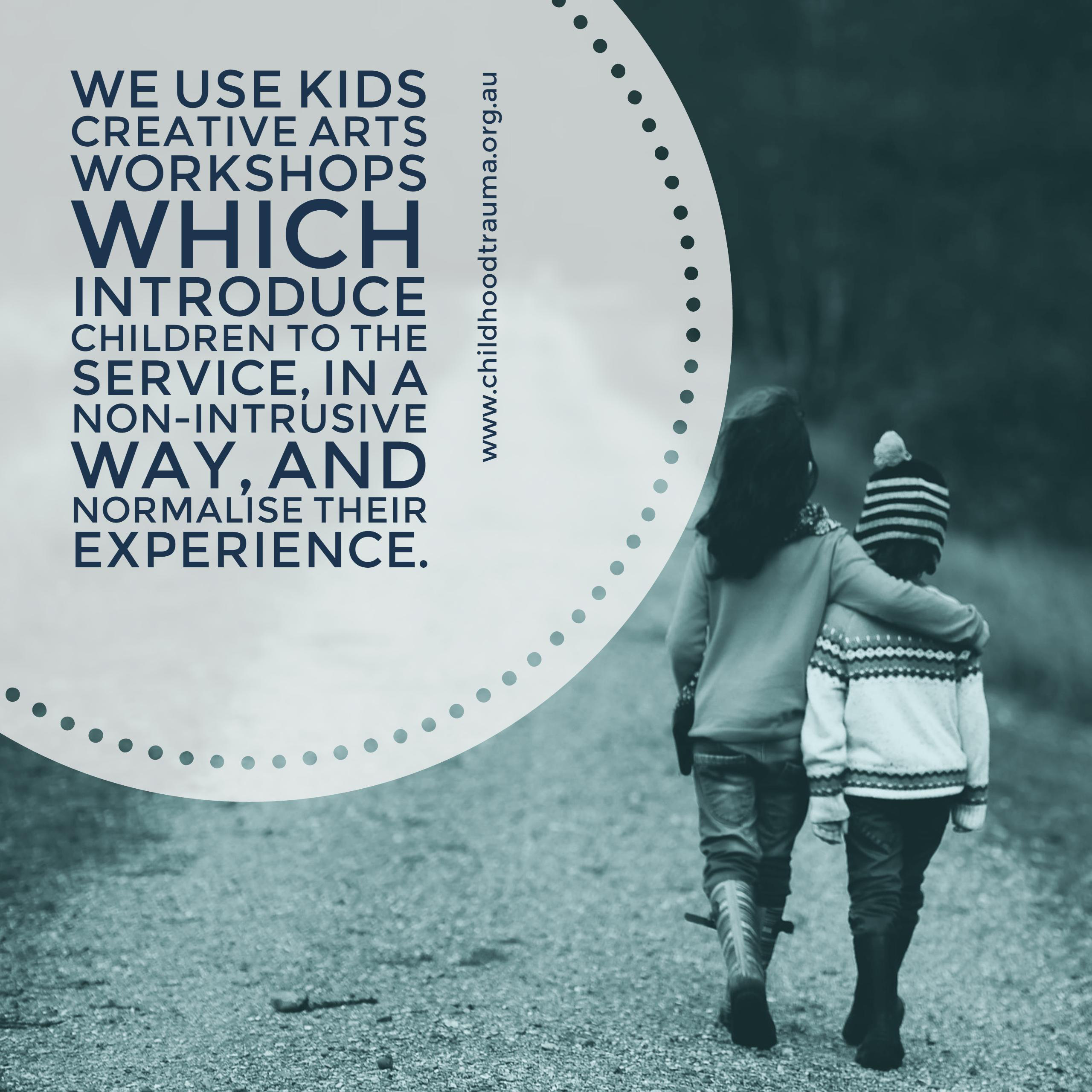
Post Adoption Support

and Senior Practitioner at Post Adoption Support Queensland, (PASQ, Benevolent Society).
As many Australian jurisdictions increasingly rely on adoption as a permanency response within children protection systems, it is important to reflect on learnings from current and past practice with people impacted by adoption.
Our knowledge and understanding of the impact of past adoptions continues to inform our practice, along with the legacy of that era: shame, secrecy, and feelings of abandonment, all continue to have a lifelong impact on the family and individual. We’re aware that children who have experienced separation from primary caregivers are more likely to be anxious of abandonment and rejection, question their self-worth, have difficulty expressing their feelings and needs, be sensitive to transitions and endings, including the therapeutic relationship (Verrier).

We know children who have been adopted or are in out of home care have disrupted attachments. We also know that having a secure attachment to a care giver and a consistent therapeutic relationship with a therapist is key to promoting healing. Some observers might ask in the current climate of promoting permanency for children in foster care, including open adoption, why funding for post adoption support services has not kept pace and appears not to reflect current evidence and knowledge about the lifelong impacts of adoption and the needs of all parties involved in the adoption circle.
The aim of our therapeutic intervention with children is to promote a positive and stronger sense of self-identity and to enhance wellbeing and connectedness to their origins. Adoption and permanency is a journey for life. The earlier and easier it is for children and families to feel familiar and comfortable with professional support services, the smoother and more responsive the process when extra support is needed. Our aim is to work towards becoming a secure base for our clients, to help the child’s ability to trust and engage with care providers by taking a relational approach, where key learnings and change can occur from.
To best engage with our children we must first be aware of our own “social lens”, focussing on and becoming aware of our own biases and attitudes which can impact establishing a therapeutic connection with our clients. This includes being aware of the social, cultural and historical factors affecting the child’s circle of life, e.g. ethnicity, culture, interpersonal family dynamics, socio-economic and environmental supports, along with media portrayals of adoption and the care system (Baden & Wiley). It is important to understand that separation from biological families is traumatic and complicated and not the ‘clean slate, or win-win’ scenario as sometimes viewed by the helping professionals (Australian Institute of Family Studies, National Research Study on the Service Response to Past Adoption Practices).
Being authentic with children is paramount to developing a connection. This is done by establishing rapport through genuine interest, curiosity, wonderment and a position of developing a safe, trusting, therapeutic relationship with the child and parents. In a therapeutic context, how I interact, or “do for” the parent, is what I want them to do for the child. I engage parents and children at all levels, using my ‘loving eyes’ (Petersen), demonstrating caring and compassion non-verbally, using varying tones of voice to appeal to both right and left brains, to help activate their attachment (Baylin & Hughes).

By using an integrated systemic ecological approach, where the child is central, we collaborate with all key family members, to establish trust and implement broader supports. Counselling at PASQ is offered individually and as a family; child focused activities include Kids Creative Arts Holiday workshops, Family Fun Day events, Teen movie nights; parenting support via Therapeutic Parenting workshops and Tips and Strategies seminars. We partner with local support groups, with a focus on establishing trust and familiarity enabling a child to want to engage with us. Children are introduced to PASQ by a familiar trusted care provider or support group. Through the activity based workshops, children and young people get to ‘see’ who we are. Collaborative partnerships are key to providing services to the ever-changing needs of children and families.
With an Acceptance and Commitment Therapeutic approach in mind, I share alongside children their journey; helping assist with feelings of connectedness and belonging, exploring their sense of self, offering reframe and reassurance of not having to manage their worries or concerns by themselves. Various strategies ranging from mindfulness techniques to body orientated therapies assist with self-regulation. “Children learn best through play” (Aronson), hence my development of Kids Creative Arts Workshops which introduce children to the PASQ service, in a non-intrusive way, as well as normalising their experience by establishing connections with others who have shared similar circumstances. In therapy we use various tools to engage with children, including developing ‘feeling thermometers’, ‘brain bottles’ when providing psycho-education about the workings of the brain and demonstrating what is required for the brain to calm down.
My commitment and great passion is working with children and parents, undiminished for 20 years, from Community Health to Family Support; to Fostering and Post Adoption Services with the Benevolent Society. I am passionate about early identification and intervention; helping families do the best with what they have, at a pace suitable to their child’s ability; helping children develop a positive sense of self, an ability to regulate and develop resilience which will see them through an ever-changing world, helping to empower them to develop self-efficacy.
I often view the world through the lens of a child, whereby genuine interventions achieve the most rewarding outcomes; where change occurs from within a secure base relationship; where a person’s connection with another can activate a connection with oneself, adding to their sense of “MWE” … Me and We (Siegel), a sense of connection and belonging in the world.
With this in mind, please feel free to contact me at Post Adoption Support Queensland where I will happily discuss my approach and our services.
References:
Adoption Information Act 1990 (NSW). Retrieved from http://www.legislation.nsw.gov.au/acts/1990-63.pdf
Aronson, J. (2016, January). Social Orphans. Paper presented at the 5th International Adoption Conference Research, Auckland, New Zealand
Australian Institute of Family Studies. (2012). National Research Study on the Service Response to Past Adoption Practices Research Report No. 21. Retrieved from https://aifs.gov.au/publications/past-adoption-experiences
Australian Institute of Health and Wellbeing. (2015) Adoptions. Retrieved from http://www.aihw.gov.au/adoptions/
Baden, A. & Wiley, M (2007). Counselling Adopted Persons in Adulthood: Integrating Practice and Research. Retrieved from: http://tcp.sagepub.com/content/35/6/868.abstract
Council of Australian Governments. (2009). Protecting Children is Everyone’s Business: National Framework for Protecting Australia’s Children 2009-2020. Retrieved from https://webcache.googleusercontent.com/search?q=cache:knnFdyWIVM8J:https://www.coag.gov.au/sites/default/files/child_protection_framework.rtf+&cd=1&hl=en&ct=clnk&gl=au
Hughes, D. & Baylin, J. (2012). Brain-based parenting: The neuroscience of caregiving for healthy attachment (1st ed.). New York, USA: W.W. Norton & Co.
Petersen, S. (2014). Therapeutic Parenting: Information, skills and support for parents with children with additional emotional and behavioural needs. SA, Australia: Australian Institute of Social Relations
Powell, B., Cooper, G., Hoffman, K. & Marvin, B. (2014). The circle of security intervention: Enhancing attachment in early parent-child relationships. New York, NY: Guilford Press.
Siegel, D. (2016, January). Integration in Childhood Trauma: The role of clinician presence in evaluation and treatment to cultivate well-being in children and adolescents. Presented at the 5th International Adoption Conference Research, Auckland, New Zealand
Verrier, N. (1993). The Primal Wound: Understanding the Adopted Child. Baltimore, USA: Gateway Press Inc.
